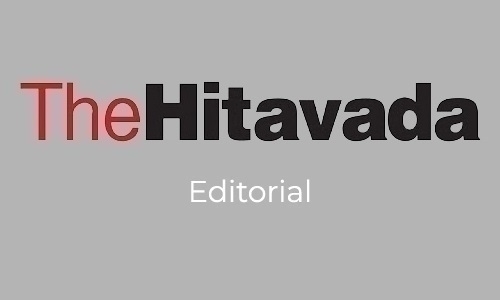Great confidence
| Date :09-May-2025 |

EVEN as the nation rejoices the assertion of its pride through “Operation Sindoor”, nobody discounts possibilities of escalation of hostilities from the Pakistani side. Of course, each and every Indian is fully confident that the country’s famed Armed Forces are fully ready to face any eventuality -- after having been given a green signal to make their decision of how to meet the ensuing challenge. In other words, the nation wants certain escalation of hostilities so that Pakistan could be taught a tougher lesson. May be, as many dream of, Pakistan could be sliced into a couple of smaller geographies if it shows the temerity and thoughtless courage to keep daring the mighty Indian Armed Forces. That is one thought that galvanises the country’s 1.4 billion people.
his confidence stems from the astute leadership offered to the nation by Prime Minister Mr. Narendra Modi and his team of close associates and the whole organism of the Government. Over the past eleven years of his Prime Ministership, Mr. Narendra Modi has built a carefully crafted model of leadership whose writ runs well in all domains with equal elan -- economy, strategy, security, diplomacy, education ... ! As the Pahalgam crisis raised its ugly head, the Prime Minister swung into a well-thought action and led the nation to believe in its own capabilities. “Operation Sindoor” came in the wake of all that preparation, in the process shocking the world.
The question now is, ‘what next?’ In other words, what will happen from now onwards ? How will Pakistan behave ? Will it escalate hostilities as its Prime Minister Mr. Shahbaz Sharif said in Parliament, or what its Defence Minister Mr. Khawaja Muhammad Asif said -- that Pakistan may leave things as those are if India did not come back attacking again ? It is this issue that is uppermost in everybody’s mind. However, even as the world considered what happened in the Indian missile strike, Pakistan started hitting civilian targets on the Indian side of the border -- killing 12 Indians.
This can be interpreted as Pakistan’s eagerness to hit back, indicating that hostilities may continue.
There, of course, is pressure building from many countries of the world that India and Pakistan must not stretch things too much. However, National Security Advisor Mr. Ajit Doval has communicated to his counterparts in a few major countries that the onus of peace should be on Pakistan and not on India. India has been wronged time and again. India has suffered terrorist onslaught time and again. This time, it has exercised its right to respond, Mr. Doval has reportedly said. The same sentiment has been expressed by the Union Cabinet as well as Defence Minister Mr. Rajnath Singh.
Defence experts also suggest that Pakistan does not have the ability to stretch a conflict beyond a point, and would capitulate sooner than anybody may expect -- if conflict becomes grimmer.
They do not rule out the possibility of a limited help to Pakistan by some countries in case the conflict gets intense. But that help, too, would not add much strength to Pakistan’s already weakened preparedness.
In sum and substance, India has made its position very strong on all counts, and has the ability to indulge in a sustained conflict without much dent in its resources. Pakistan’s condition is exactly the opposite -- with its shrunken foreign exchange reserves, oil reserves and military hardware reserves. If the hostilities escalate into a full conflict, India will have a stronger resource base than the enemy. This confidence has percolated down to the last man in the country, thanks to the manner in which the leadership has taken the country on the growth path over the past one plus decade. The whole country looks at “Operation Sindoor” from that angle.